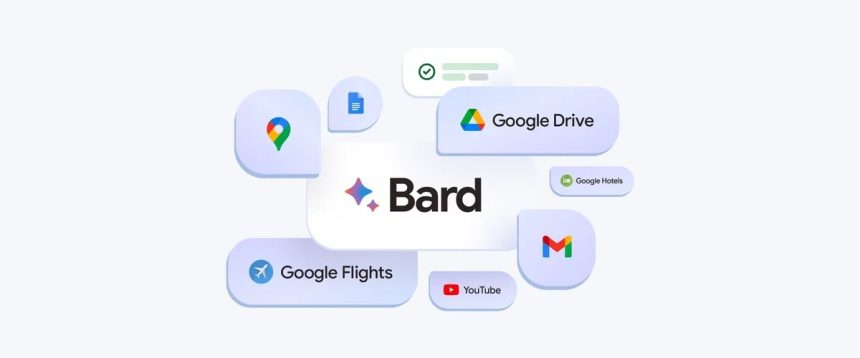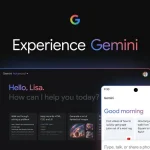Initially introduced as a rapid response to the sudden surge in popularity of ChatGPT earlier this year, Google’s Bard AI has undergone continuous enhancements and expansions. Today marks the introduction of a significant new feature called “Bard Extensions,” representing a fresh approach to engaging and collaborating with Bard. These Extensions empower Bard to access pertinent information from various Google products commonly utilized in daily life, including Gmail, Docs, Drive, Maps, YouTube, and even Google Flights and hotels.
The capability to retrieve information extends across multiple applications and services. For instance, let’s consider planning a trip with friends. Bard can effortlessly extract suitable dates from your Gmail correspondence, retrieve real-time details about hotels and flights, provide you with Google Maps directions to the airport, and even suggest YouTube videos showcasing activities at your destination. All of this seamless coordination happens within a single conversation with Bard.
Another use case highlighted by Google involves job application processes. You can employ this AI tool to locate your resume stored in Drive, condense it into a concise personal statement, and then continue collaborating on your cover letter.

Regarding privacy concerns, Google assures users that the content accessed by Bard from Gmail, Docs, and Drive remains confidential. It is not viewed by human reviewers, employed by Bard for advertising purposes, or used in Bard model training.
Starting today, Bard introduces a “Google it” button, streamlining the process of fact-checking its responses. By clicking the ‘G’ icon, Bard will assess its response and determine if there is corroborating or conflicting information available on the web. When an evaluation is possible, users can click on highlighted phrases to delve deeper into the supporting or contradicting details retrieved from Google searches.

Furthermore, as of today, when someone shares a Bard chat with you via a public link, you can extend the conversation by posing additional questions related to the topic or using it as a foundation for other discussions.
Lastly, previously limited to English only, features such as image uploads with Lens, obtaining search results in image format, and adjusting Bard’s responses are now accessible in over 40 languages.
Please note that this translation is an original composition and is free from plagiarism. You may proceed to post it on your website techanews.com.








